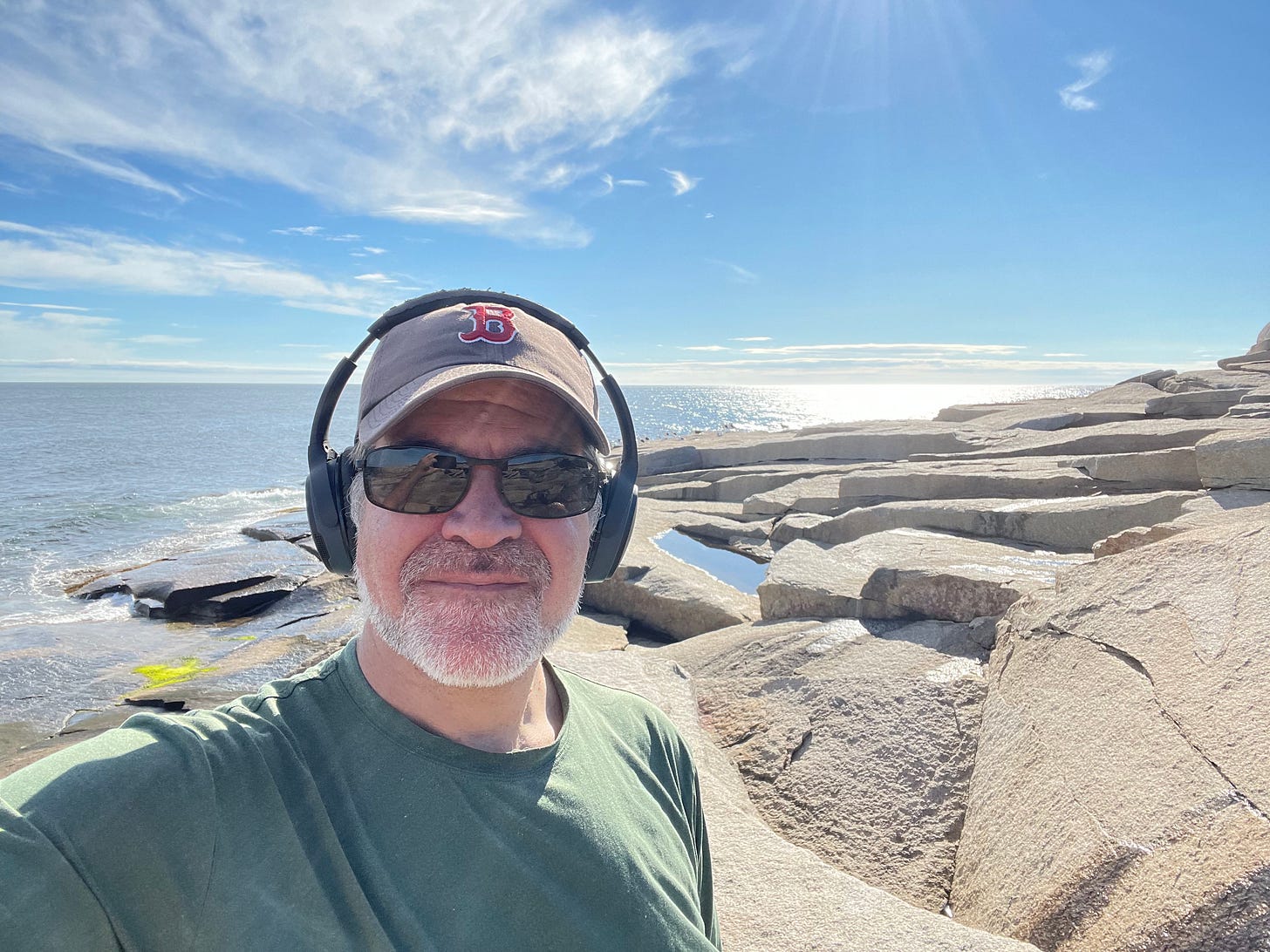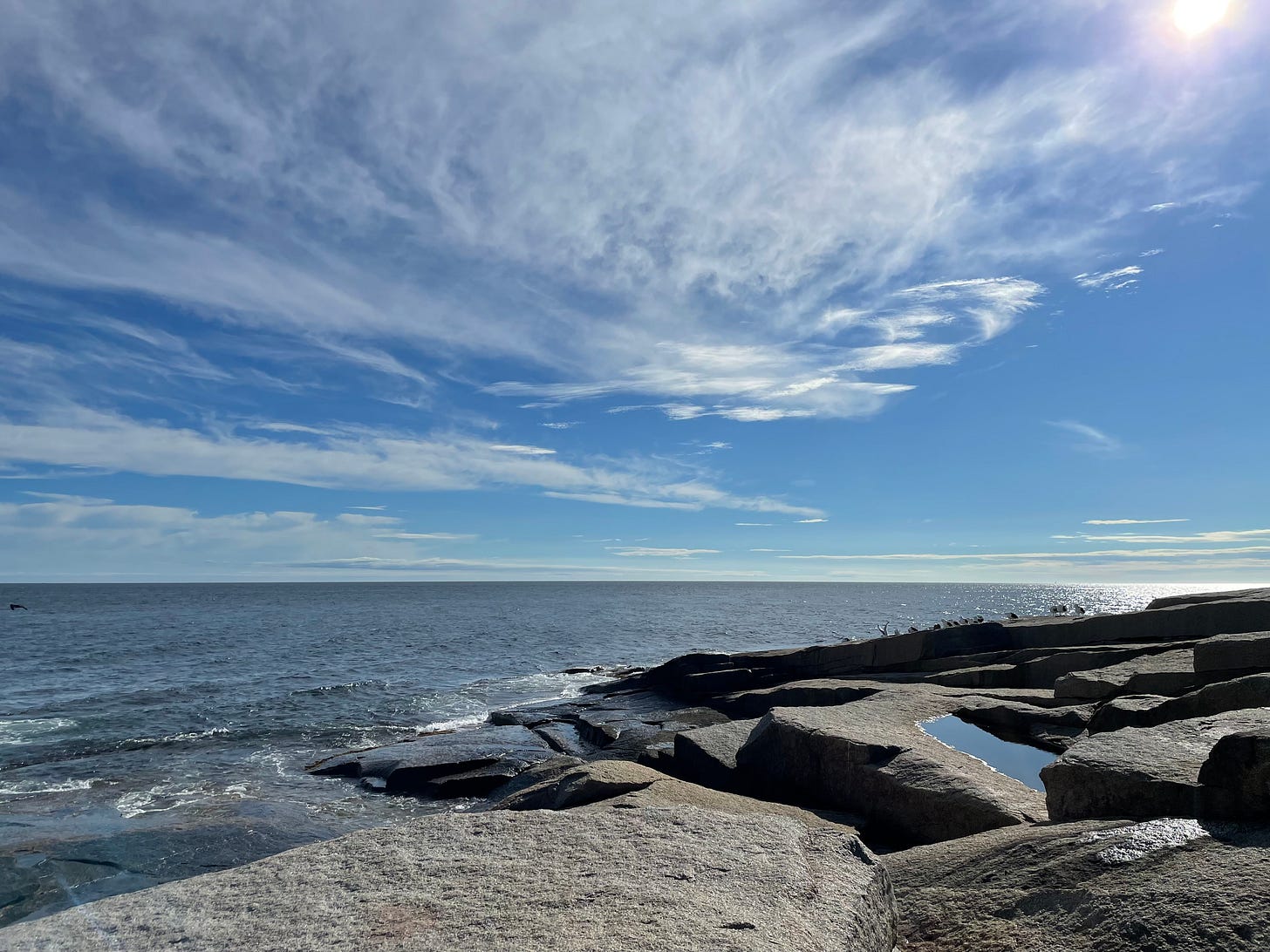
Dear friends,
I’m breaking with the usual form here to send a year-end personal note.
First, and most important, let me just say that I hope y’all are finding time to take care of yourselves and those around you in the midst of everything happening in the world. I’m far from perfect when it comes to this most basic of responsibilities—which means that I know the cost of failing to do so, and it can be a high one. Maybe you’ll feel like joining me as I recommit to treating myself and others with care and compassion.
Now, some news: After eight years (and a lot of struggle) since my first book was published, I can tell you that I’ve signed a contract for my next one—a series of essays, tentatively titled Learning to Live in the Dark: Essays in a Time of Catastrophe—with the great Chicago-based Haymarket Books. I’m a little stunned to be able to write that preceding sentence. I set out to write these essays, which were always meant to be read together as a series, without knowing if they’d ever take form as a book. It now appears that they will, and I’m immeasurably grateful to the folks at Haymarket—and everyone who has encouraged me along the way. There’s still a bit of writing to do, and it’ll be a year or so until the book is out (hoping for early 2025).
Meanwhile, in other news: I’m heading to Nepal—you read that right—for six weeks, leaving at the end of this month, for both personal and journalistic reasons. It’s been 33 years since I was there, at the start of a six-month journey across Asia (Nepal, India, Thailand, China, Japan) as a mostly clueless young GenX backpacker, and I’ve wanted to get back ever since. This time, I’ll be researching and reporting a couple of articles on the impacts of climate change in one of the world’s poorest and most vulnerable countries (and, just maybe, another book). Stay tuned, I’ll say more in the weeks ahead (and might send an update from Kathmandu).
Lastly, for now, a follow-up to the message sent on Monday from Gus Speth and myself. Many of you will have already seen David Wallace-Wells’s latest NYT column (or newsletter), “What No One at COP28 Wanted to Say Out Loud: Prepare for 1.5 Degrees.” But many of you won’t, and since it’s subscriber-only, I want to quote it at some length. It’s one of the clearest post-mortems I’ve read on the COP28 petro-summit in Dubai. Wallace-Wells writes:
….despite Al Jaber’s claim that COP28 has kept the 1.5 degree goal alive, hardly anyone believes it’s still plausible.
Instead, most analysts predict a global peak in fossil fuel emissions at some point over the next decade, followed not by a decline but a long plateau — meaning that, every year for the foreseeable future, we would be doing roughly as much damage to the future of the planet’s climate as was done in recent years. The expected result: end-of-century warming between 2 and 3 degrees Celsius.
Not very long ago, this was a future that terrified us — the world beyond the goals of the Paris agreement looking tremendously bleak. Now, we are not just coming to accept that future but, in some corners, applauding it as progress.
Over the last several years, as decarbonization has made worst case scenarios seem much less likely, a wave of climate alarmism has given way somewhat to a new mix of accommodation and optimism. At this year’s COP, Bill Gates described anything below 3 degrees as a “fortunate” outcome. A few months earlier, former President Barack Obama struck a similar note in a YouTube interview with Hasan Minhaj, describing how he’d tried to talk his daughter Malia off the edge of climate despair by emphasizing what could still be saved rather than what had been lost already through global inaction: “We may not be able to cap temperature rise to 2 degrees Centigrade, but here’s the thing, if we work really hard, we may be able to cap it at two and a half.” In an upbeat polemic to be published next month, the Scottish data scientist Hannah Ritchie gives a kind of stiff-arm to those caught in a panic about warming and environmental degradation; the book is called “Not the End of the World.”
I’ve peddled some of that optimism, too; it’s important to clock progress. But I also think that in the aftermath of a conference that may well be remembered as the moment the climate world finally gave up on the goal of limiting warming to 1.5 degrees, it is worth recalling now just what passing that threshold would mean. …
Between 1.5 degrees and 2 degrees, it is estimated, more than 150 million people would die prematurely from the air pollution produced by the burning of fossil fuel responsible for that level of warming. Around the world, flooding events that used to arrive once a century, typically marking local cultures or even whole civilizations for generations, would instead strike annually — and in some places more often than that. Going from 1.5 degrees to 2 degrees, most scientists believe, would be a death sentence for the world’s coral reefs. And many believe that, in that range, the planet will lock in the permanent loss of many of its ice sheets, which could bring, over centuries, enough sea level rise to redraw the world’s coastlines.
If warming grows beyond those levels, so will its impacts. At 3 degrees, for instance, New York City could be hit by three 100-year flooding events each year and more than 50 times as many people in African cities would experience conditions of dangerous heat, as Bloomberg recently summarized. Wildfires would burn twice as much land globally, and the Amazon would cease to be a rainforest but a grassland. Potentially lethal heat stress, almost unheard of at 1.5 degrees, would become routine for billions at 2 degrees, according to one recent study, and above 3 degrees would impact places like the American Midwest.
In some ways, these projections may sound like old news, but as we find ourselves now adjusting to the possibility of a future shaped by temperature rise of that kind, it may be clarifying to recall that, almost certainly, when you first heard those projections, you were horrified. The era of climate reckoning has also been, to some degree, a period of normalization, and while there are surely reasons to move past apocalyptic politics toward something more pragmatic, one cost is a loss of perspective at negotiated, technocratic events like these.
I'm not sure that I'm with him on the “reasons to move past apocalyptic politics toward something more pragmatic”—I'm curious what those reasons might be, because thus far “pragmatic” has been another word for accommodation, or to put it another way, settling for what amounts to a kind of genocide for large parts of humanity. But aside from that minor point (!!), I'm impressed by DWW’s calm and understated epitaph for 1.5C and his diagnosis of a cold-blooded normalization that has taken hold among the elites (including journalists and scientists) who shape climate policy and discourse.
I, for one, am still horrified—which is one big reason I refuse to give up.
Let there be peace with justice in the new year,
Wen



Looking forward to reading the new book.
Thanks for all your ongoing good work in getting out the word.
- From Poneke/Wellington,
Aotearoa New Zealand